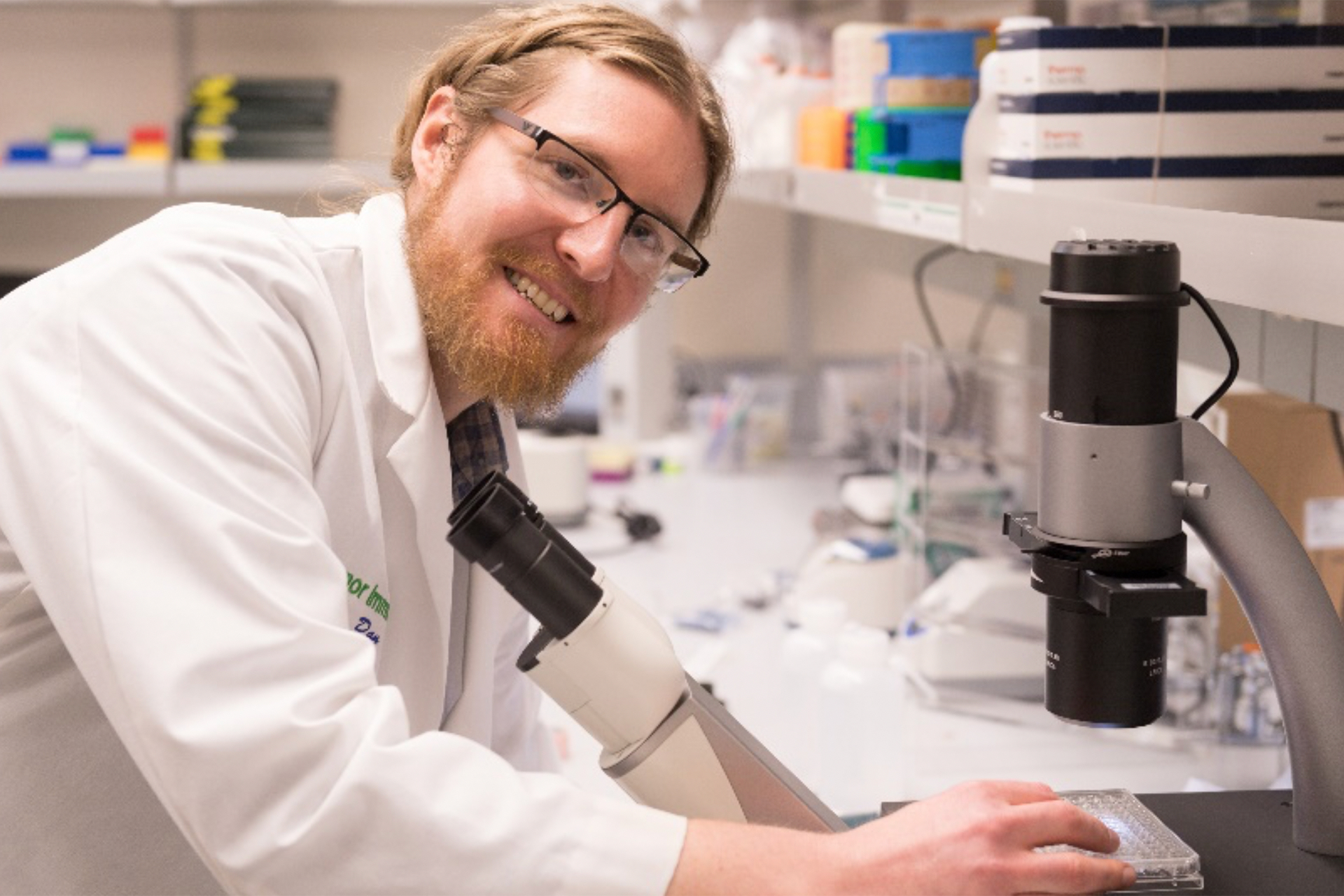
Assistant Professor Dan Regan is taking home the 2020 Webb-Waring Biomedical Research Award from the Boettcher Foundation.
Dan Regan, an assistant professor in Microbiology, Immunology, and Pathology, was recently selected to receive the Boettcher Foundation’s 2020 Webb-Waring Biomedical Research Award.
The award supports promising early-career scientific investigators, allowing them to establish their independent research and make it competitive for major federal and private grants. Recipients, known as Boettcher Investigators, are awarded $235,000 to sustain up to three years of biomedical research. Regan joins seven other recipients from five of Colorado’s top research institutions and is the 12th scientist at Colorado State University to receive the award.
“I am grateful to the Boettcher Foundation for their commitment to biomedical research,” said Regan. “This award provides a fantastic opportunity to gain momentum and make an impact in my field.”
“This class of Boettcher Investigators are the example of Colorado’s innovation in bioscience research that aims to improve our preparation, response, and deepen our knowledge of human health issues,” said Katie Kramer, president, and CEO of the Boettcher Foundation. “We are proud to support their expert work at this significant juncture in their research careers.”
A novel approach to early detection
Regan’s work in metastatic cancer research at his Investigational Pathology Lab at the Flint Animal Cancer Center caught the attention of the Boettcher Foundation.
“Many types of cancer, in both pets and people, spread to the lungs,” Regan said. “Once cancer progresses, we have few treatment options. My work focuses on looking at tumor metastasis through the lens of the tumor microenvironment.”
Regan has spent the last decade examining the tumor microenvironment and why some sites in the body promote tumor growth. He explains his work with a simple analogy known as the seed and soil theory. He wants to understand how cancer cells (seeds) know where to find welcoming locations to take root (soil).
With the Boettcher Investigator award, Regan is taking a new approach to his study of metastatic disease. In a unique application, Regan is looking at cells retrieved from the lungs using a diagnostic procedure called bronchoalveolar lavage. The technique uses fluid to wash the lungs and extracts the fluid for examination. Regan has reason to believe certain types of recovered cells have the potential to signal an early warning of tumor metastasis.
“Today’s imaging technology, such as CT scans, detects tumors, but it can be too late,” he said. “Biopsies are very invasive. Using this procedure, if we can find earlier clues, we can better guide treatment and hopefully improve patient outcomes.”
Building on his preliminary work, Regan plans to spend the next several months gathering additional data from donated human cells and mouse models. The goal is to identify which cell type offers the best signature for early detection.
In addition to laboratory study, the award supports a small clinical trial in dogs with Osteosarcoma, a disease in which 80% of patients experience lung metastasis. Regan will focus on patients who do not appear to have pulmonary tumors based on imaging. Using bronchoalveolar lavage, he will collect patient samples to look for red flags in the retrieved cells. He expects the trial to start sometime next year.
“I am grateful to the Boettcher Foundation for their support and taking a chance on a higher risk concept that I believe has the power to pay real dividends for pet and human health,” Regan said.